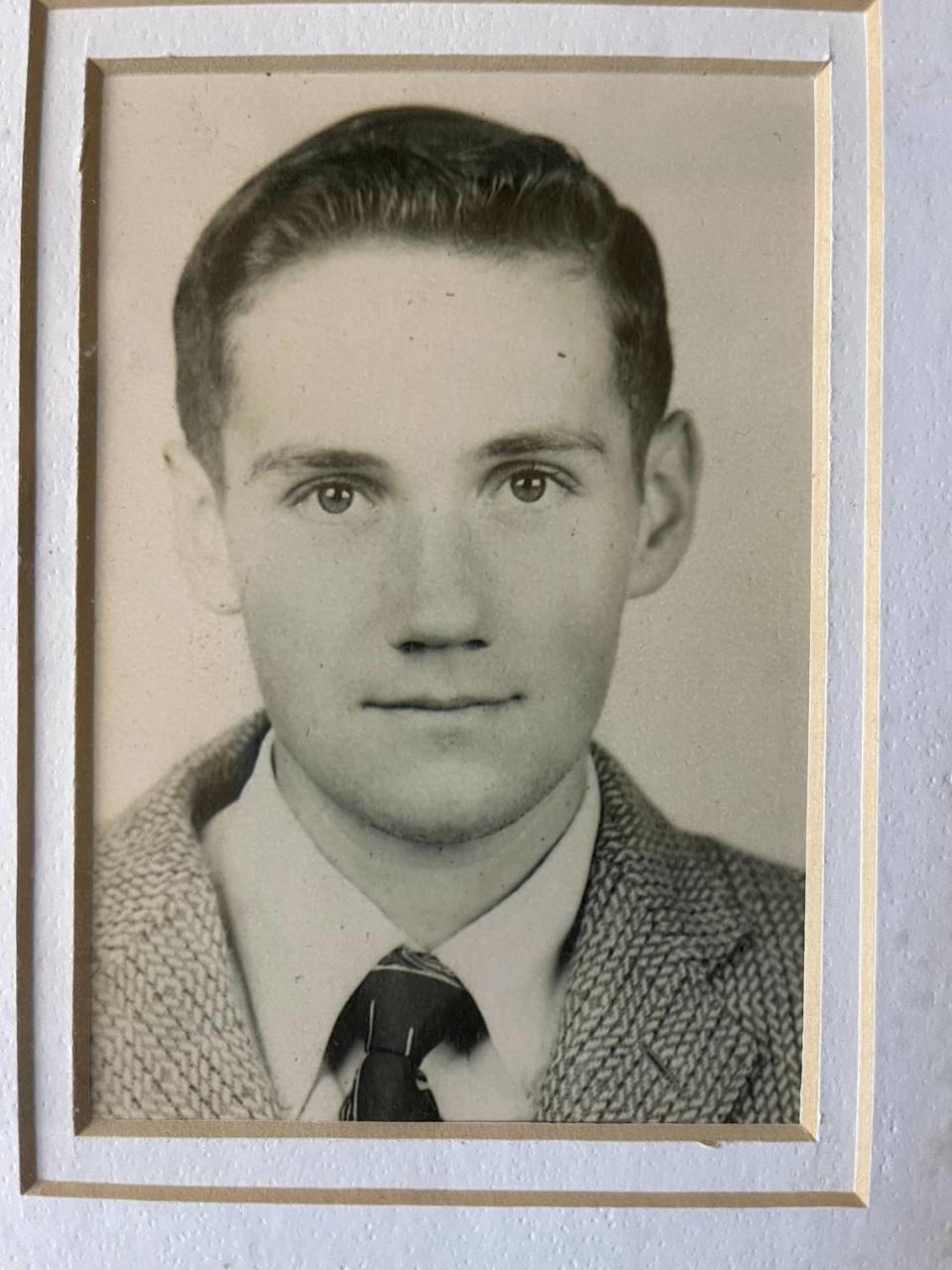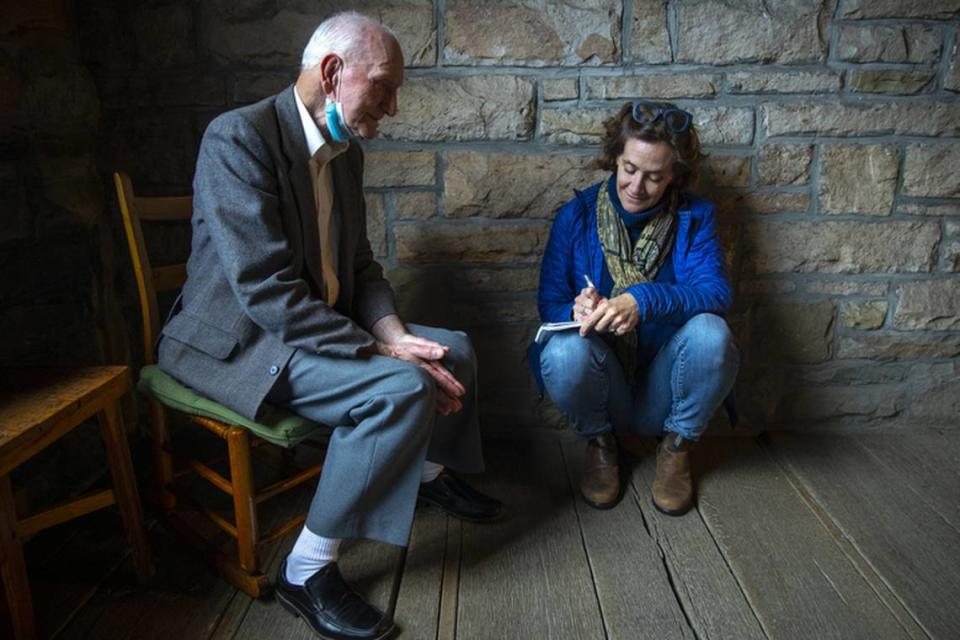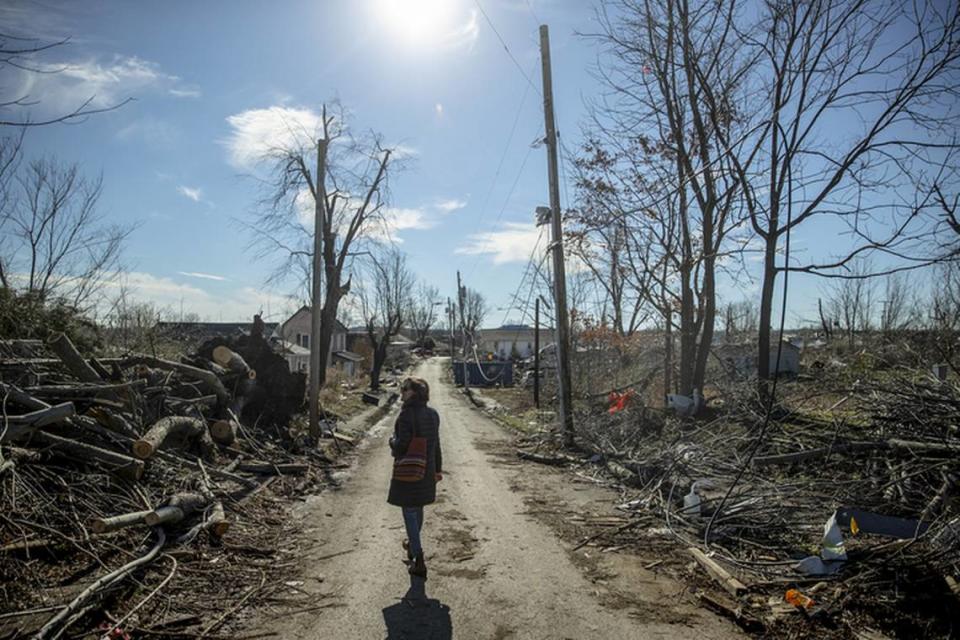Get to know columnist Linda Blackford: Why I tell Kentucky stories, and love doing so
Editor’s note: Since 1870, the Herald-Leader has been a part of Lexington’s history. Its headlines, stories and photos have defined life here and across Kentucky. But who generates that content? Today, we debut “Behind the Byline,” an occasional series that introduces the journalists whose work appears in our print editions and on Kentucky.com. You’ll learn we’re more than reporters, photographers and editors. We’re also your neighbors and are proud to serve Kentucky readers. Today, meet Linda Blackford, our Opinion Page columnist.
On March 18, 1952, the University of Virginia’s student newspaper led with an editorial headlined: “Scholastic Segregation.”
In it, the author urged the university to allow Black undergraduates to enroll in Mr. Jefferson’s University: “We do not believe a man’s intellectual ability is determined by the color of his skin. We do not believe an ‘aristocracy of intellect’ is composed solely of one race. We believe the essence of a democratic educational system to consist in allowing equal, unseparated opportunities for all men regardless of their ‘race, color or creed.’
“We are not much interested in (integration’s) popularity but whether it is right or wrong. We believe it is right.”
The author was my father, Staige D. Blackford. His words, two years before the Supreme Court abolished de jure segregation in the Brown decision, nearly got him expelled from school and did get him kicked out of his fraternity.
It was a courageous stance to take in Charlottesville, Virginia, in 1952, but it showed how powerful the pen can be standing up for what is right, instead of what’s popular.
(It also showed the importance of patience and fortitude — UVA did not allow Black undergraduates until the late 1960s and didn’t start to accept women until 1970 in small groups. The first class accepted regardless of gender was in 1972.)

My dad went onto a series of jobs — CIA analyst, book editor, civil rights worker, political reporter and magazine editor — but he always held that journalism was the best job. You could “afflict the comfortable and comfort the afflicted,” while getting to write about fascinating people, places and things, he said.
That’s true.
For all its troubles, and there are many, journalism is still a wonderful, fulfilling job, especially when you’re doing it in a place as interesting in Kentucky.

Landing in Lexington
I landed here in Lexington through a circuitous route.
I followed dad to UVA, which didn’t have a journalism program. So, I waitressed and freelanced and worked at a weekly paper in Charlottesville.
My first daily newspaper job was in Charleston, West Virginia, covering the Kanawha County Schools. It was a great education for a young reporter. Owner Ned Chilton, sometimes known as “Ned the Red,” had set a template for asking tough questions in a state ruled by coal.
Watching such reporters as Paul Nyden and Ken Ward take on what was still an omnipotent industry in the mid-1990s was invaluable. I got to travel to counties around that beautiful state, where issues then, as now, reverberated over funding, curriculum and testing.
But for education reporters, the real story was to the west. With the 1990 passage of the Kentucky Education Reform Act, the Commonwealth had created a revolution in all those areas, and luckily for me, the Herald-Leader wanted someone to cover the larger story.
This was near the end of the golden age of newspapers. The Herald-Leader had a higher ed reporter, a Fayette schools reporter and a reporter just looking at all the ups and downs of KERA.
I’ll never forget my first legislative session in 1998: Trying to figure out the ins and outs of the Capitol, while trying not to get scooped by my good friend, Lonnie Harp at the Courier Journal.
A legislator named Gex Williams (sound familiar?) was trying to tear down KERA through its testing system and the still-Democratic Senate was trying to hold firm to the idea of measuring children through a host of parameters.
In many ways, KERA was too ahead of its time, but Kentuckians should be proud of the funding formula that was one of the first in the country to stop relying on local and vastly unequal property taxes. (The cruelty of the previous system was well-illustrated by my Herald-Leader colleagues in their series “Cheating Our Children” in 1989.)
My work moved on to higher education and the investigative beat, along with general assignment reporting that took me all over this magnificent state.
I’ve had the opportunity to commiserate with flood and tornado victims, uncover corruption in such organizations as Kentucky League of Cities and the state courthouse construction program, stopped an agriculture tax giveaway in Fayette County, and explain why the Herald-Leader never properly covered Lexington’s civil rights movement.
Sadly, my father died before he could see that project, but I know he would have been proud.

Now, I’m in a job he would especially appreciate — opinion columnist — calling out injustice and inequality as much as I can, and telling stories about Kentucky, whether it’s a 100-year-old nativity play at Pine Mountain Settlement School or trying to describe a city swept away in Western Kentucky.
Today, I’m still surprised it’s been 25 years at the same place. Back then most reporters worked somewhere for three or four years, then moved on to the next, bigger platform. I stayed for good and bad reasons: I met my husband and started raising our three boys at the same time the newspaper industry began its slow but steady decline.
So we stayed here, and we’re glad we did. Lexington is a great place to raise kids. Fayette County schools are a marvel at educating so many different kinds of children every day, my three among them. Lexington is big enough to support great culture, art, and restaurants and small enough that wide open spaces are just a few minutes drive away.
And within an hour? Mountains, rivers, grasslands, along with fascinating people with even better stories. This job has let me meet people around the state who have shown me all the ways they treasure it, and how I can treasure it as well.
I hope I get to do this work a lot longer.
These days, when news layoffs are announced around the country almost daily, I take nothing for granted.
Like you, I’m alarmed by our shrinking news coverage and expanding subscription costs. We are now writing for a smaller audience.
I don’t know what the answers are. I only know that my colleagues and I are determined to keep putting out the news, holding people accountable and telling people’s stories.
That’s the best way we know to treasure Kentucky, too.

